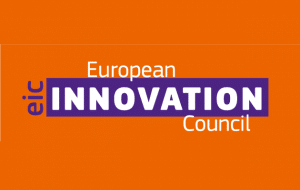Ukraine: an active associated country in H2020 and Horizon Europe
The war in Ukraine, which began in 2014, has had significant consequences for research in the country. Some of the effects include:
- Brain drain: The conflict has led to a significant brain drain, with many researchers leaving the country to seek better opportunities abroad. This has resulted in a loss of talent and expertise in Ukraine.
- Funding cuts: The Ukrainian government has had to redirect funds towards the war effort, resulting in cuts to research funding. This has made it harder for researchers to conduct their work and has limited the scope of research projects.
- Collaboration challenges: The conflict has made it difficult for Ukrainian researchers to collaborate with their international counterparts, particularly those from countries that have imposed sanctions on Russia.
- Limited access to resources: The conflict has limited access to resources such as equipment, materials, and data for researchers, particularly those in the eastern regions of the country that have been most affected by the conflict.
- Disruption to academic institutions: The conflict has disrupted academic institutions, with many universities and research centers in eastern Ukraine being forced to close or relocate. This has had a significant impact on the education and research landscape in the country.
Ukraine is not a member state of the European Union (EU), but it has been associated with the EU Framework Programmes for Research and Innovation (R&I) since 2004.
Horizon 2020 was the largest EU research and innovation programme, with a budget of nearly €80 billion for the period of 2014-2020. It aimed to drive economic growth and create jobs by supporting research and innovation projects across a range of fields such as health, energy, environment, and information technology.
Ukraine has been an active participant in Horizon 2020. The country’s participation in the programme has been a significant driver of growth in research and innovation in Ukraine, providing access to funding, knowledge exchange, and collaborative opportunities with European partners. Ukraine had a strong focus on ICT, health, energy, and materials science.
Between 2014 and 2020, Ukrainian researchers, companies, and organizations participated in over 1,200 Horizon 2020 projects, receiving more than €182 million in funding. This level of participation made Ukraine the seventh-largest non-EU beneficiary of the programme. The country’s participation in Horizon 2020 has played a critical role in enhancing its research capabilities and fostering collaboration with European partners.
One of the key benefits of Ukraine’s participation in Horizon 2020 has been the opportunity to collaborate with leading European research institutions and companies. This collaboration has enabled Ukrainian researchers to gain access to advanced technologies, expertise, and networks, which has helped to enhance their research capabilities and competitiveness. This has contributed to Ukraine’s growth in scientific publications, and overall research output.
The participation of Ukrainian companies and SMEs in Horizon 2020 has also enabled them to access new markets and technologies, creating opportunities for economic growth and job creation. In particular, Horizon 2020 has enabled Ukrainian companies to access financing for innovative projects, which may not have been possible otherwise. This has resulted in the creation of new products, services, and processes, as well as new partnerships between Ukrainian and European companies.
Furthermore, Ukraine’s participation in Horizon 2020 has fostered the development of a stronger research and innovation ecosystem in the country. This has been achieved through the establishment of new research and innovation networks, increased access to international knowledge and expertise, and the creation of new research infrastructures. Such infrastructure includes the upgrade of research labs and equipment, which has greatly enhanced Ukraine’s research capabilities.
Ukraine’s participation in the Horizon 2020 programme has been a vital component in the country’s research and innovation ecosystem. Through its participation in the programme, Ukraine has been able to access funding, expertise, and knowledge exchange, as well as collaborate with leading European research institutions and companies. The country’s involvement in Horizon 2020 has created new opportunities for economic growth and job creation, while also contributing to the development of a stronger research and innovation ecosystem in the country.
The participation of Ukrainian organizations in Horizon Europe is expected to continue under the association agreement signed in 2014 between Ukraine and the EU.
As an associated country, Ukrainian organizations can participate in Horizon Europe on the same terms as EU member states. This means that they can apply for funding for research and innovation projects, participate in collaborative projects with partners from other countries, and benefit from the exchange of knowledge and expertise.
In Horizon Europe, Ukrainian organizations can participate in various parts of the programme, including:
- Excellent Science: Ukrainian researchers can participate in collaborative research projects in areas such as mathematics, computer science, physics, and other fundamental sciences.
- Global Challenges and European Industrial Competitiveness: Ukrainian organizations can participate in collaborative research projects in areas such as health, energy, climate, transport, digital, security, and space.
- Innovative Europe: Ukrainian organizations can participate in projects related to innovation, entrepreneurship, and the commercialization of research results.
To participate in Horizon Europe, Ukrainian organizations need to follow the same application procedures as EU member states. This includes identifying suitable calls for proposals, submitting proposals, and participating in the evaluation process.
Overall, the participation of Ukrainian organizations in Horizon Europe is expected to strengthen research and innovation collaboration between Ukraine and the EU, and contribute to the development of Ukraine’s research and innovation capacity.
Despite these challenges, Ukrainian researchers have continued to make significant contributions to their respective fields. Some researchers have even used the conflict as an opportunity to study its impact on society, politics, and international relations. However, the long-term effects of the conflict on research in Ukraine remain to be seen.




